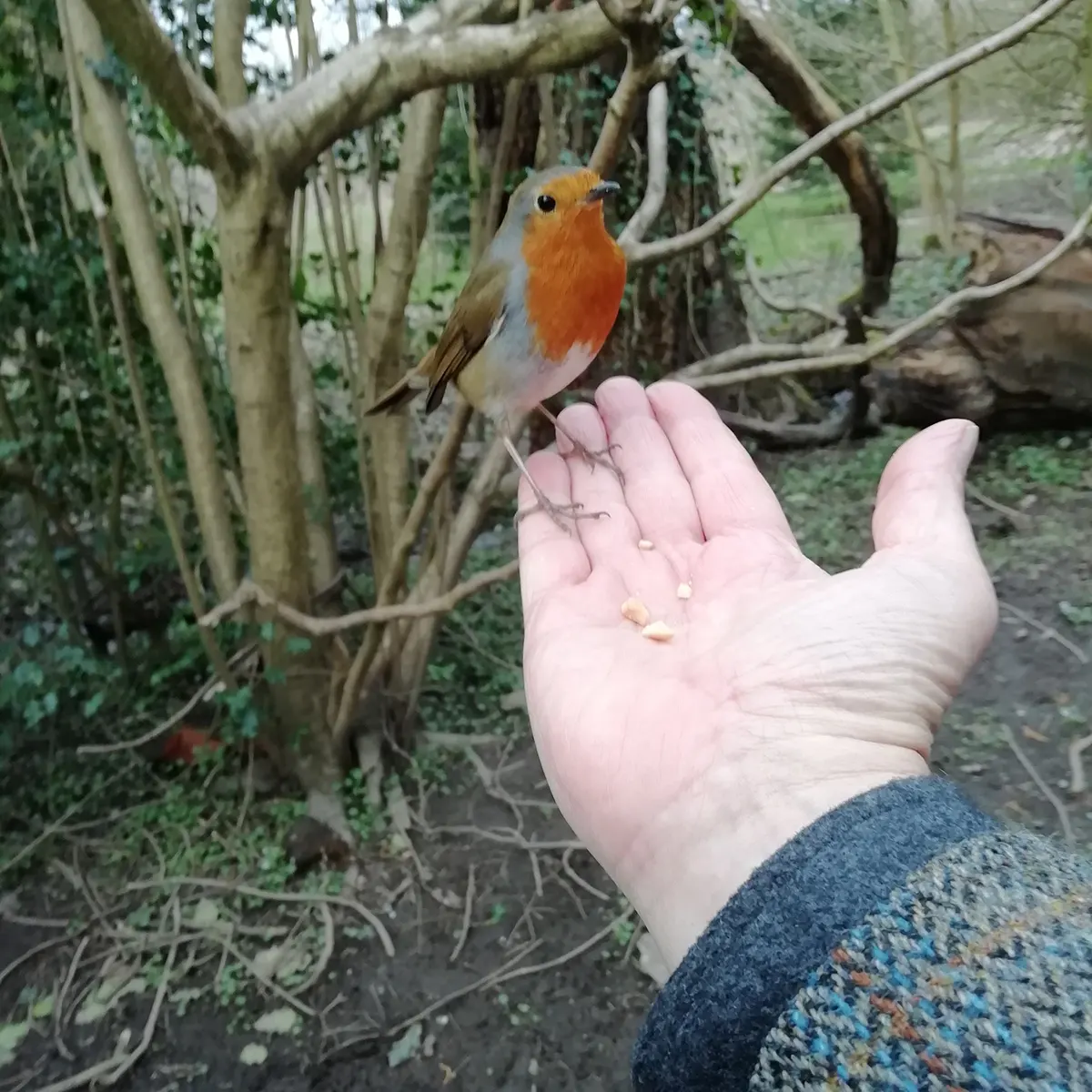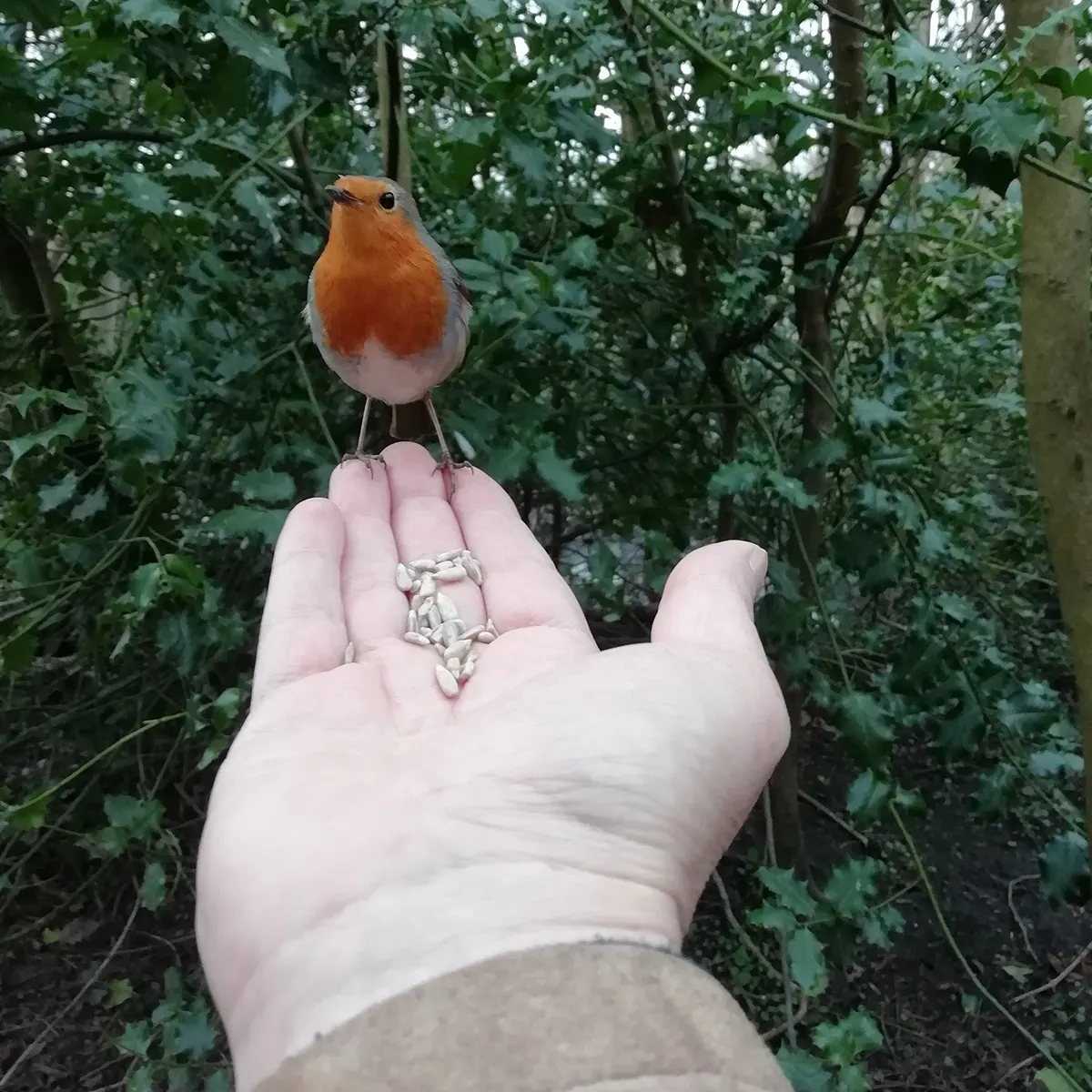There’s an idea about nature we might call encounter. We encounter it, without complete understanding. Encounter it, outside the parameters of society. Encounter it, because we see forms of life not ours. It’s a good description, and there are books about it. Helen Macdonald’s H Is for Hawk, J.A. Baker’s The Peregrine, Elli Radinger’s Wisdom of Wolves and it runs through Robert MacFarlane’s work culminating expressly with child aimed books. “When wren whirrs” he says, the beginning of something tiny but momentous. “Thrift persists despite all odds” he advises, or rather the plant does, and one imagines a child listening in wonder.
The theme traces back to Kes (1969), Ring of Bright Water (1960), nature and how we feel about it. “Into this bright, watery landscape Mij moved and took possession with a delight that communicated itself as clearly as any articulate speech could have done.” Movement, place, delight, is the thing. I’ll never forget the otter, Mij, being killed in that school film. No don’t do that. No, what did you just do? – were my child feelings when the spade slams down: which aren’t much changed. A few years ago I pursued a photography project, taking pictures of wild flowers in urban settings. I love their wildness, oblivious to order and, sometimes, the grim places where I sought and found them. Areas where I knew about crime, guns, murder; you don’t drive far for it where I live. With the last photograph, I decided that was enough. There was a beautiful array of flowers on a riverside bank, and I wrote about something dark in the local news. Robert Macfarlane called this, in a personal exchange, “experimental writing” which it was; with the territory alluded to in Leonard Cohen’s Suzanne: “And she shows you where to look among the garbage and the flowers /There are heroes in the seaweed, there are children in the morning.”
Encounter can be nasty if there’s no respect, care, or even more fundamentally – interest. Are you interested in the life of a fox, badger, otter, bird? That’s a huge topic if you think about it. Here we are, homo sapiens, on planet earth filled with millions of forms of life. It’s not my specialism, or even primary interest, but I like the subject philosophically. How it extrapolates, and blends into the practice of walking. “I took my mind a walk” says the poet Norman MacCaig, “or my mind took me a walk,” because he’s not sure which comes first.
A year ago I noticed a robin in the woods. Perky and friendly, and I had peanuts. Here robin, any good for you? – and they were. Now I walk in the woods to see and feed the robin. He knows who I am, in his robin world, or so I like to think. Would he perch on the branch expectantly if I were a different shape, with a different smell, aura, facial configuration? I don’t know but he is comfortable with me.

I tried a different kind of peanut and he didn’t like them. Ruffle ruffle on my hand, throwing them to the ground. There are moments like that in Macdonald’s book. The hawk, she says, is laughing. I felt the robin was indignant. What’s this then? – knocking the nuts to the ground. So I tried sunflower seeds: any good? He liked those and we were friends again. Sunflower seeds are nutritious and I eat them for a snack. If you buy human seeds, they’re expensive. Buy a bird packet, very cheap. They’re not produced to the same standard so there might be a slight risk. But I’ve come to no harm, stopped worrying, except to examine them for what is (apparently) fungal concern.
It’s a male robin because the female has brown colouring on her breast. I didn’t know that, before I encountered him. He’s young, and I joke saying he should be in school but prefers it in the woods. The best moment was when I gave him a few seeds and he hopped onto a branch and started singing. I talk sometimes, say a few words, and he drops his head to the side as if trying to understand. The point is the trying, not succeeding, which translates into wider relations, where and how they originate. Do you sense, feel, the other; or have you closed that possibility and don’t care. I loved the lines from W.H. Davies in his poem Leisure:
What is this life if, full of care,
We have no time to stand and stare?
The care he writes about means the worries and concerns which block us from simple pleasures. But care isn’t only that. He continues after the first line with observations about trees, sheep, cows, woods, squirrels, streams, stars, and someone’s smile whom he likes. I liked the lines as a boy, decided to remember them and did.
In the second video, from another walk, a blue tit arrives and watches with excitement. Can you feed them? Theoretically perhaps, if tigers can be tamed, hawks trained to hunt with hoods and gloves. There’s a moment, with the people who do it, when the bird first flies free. Will it come back, they think. When it does it’s the beginning of an interesting relationship. I’ll try: the blue tit knows me and the robin leads the way.
I write like this is a magazine column. With research, references, and a lot of time. If you like it, perhaps you would support me.

